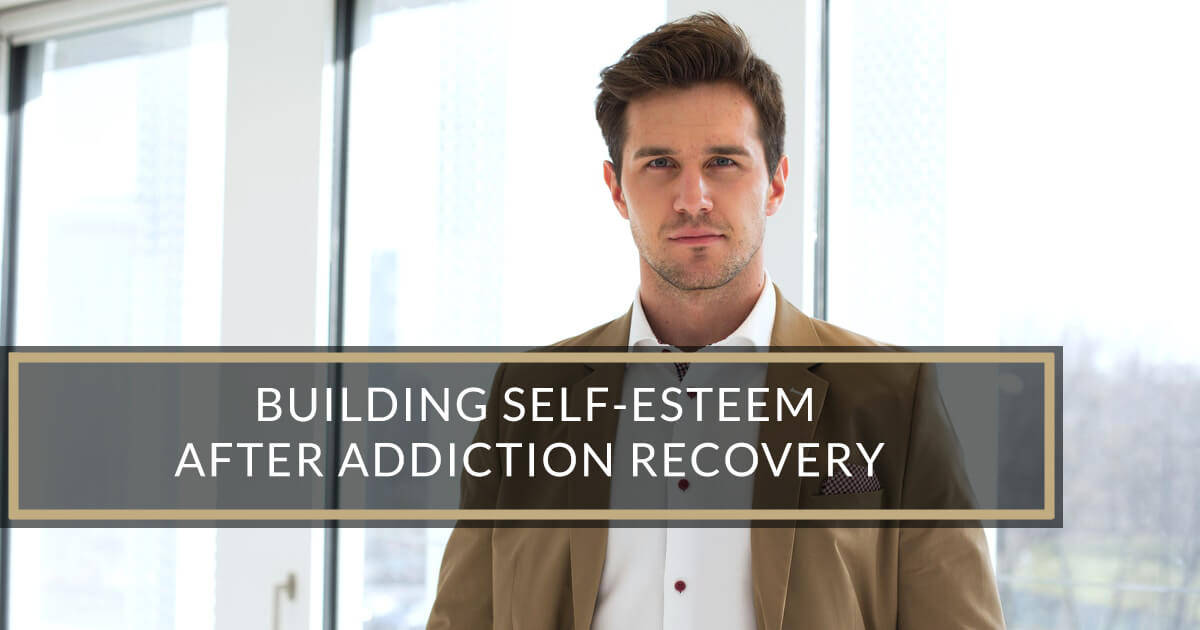Building self-esteem is an essential element of long-term addiction recovery. There are times it seems difficult to forgive yourself for the mistakes that may have led to addiction and occurred during that time, but self-forgiveness is a critical component of healing. Many individuals find it easier to forgive others than themselves. Rational thinking and good decision-making were not part of your life during addiction, and it is normal to regret things you may have said or done. Forgiving yourself for past behavior will reduce your risk of relapse and increase your chances for a great future.
Ways to Build Self-Esteem in Recovery
You may be thinking it sounds good, but how does a person build self-esteem? How do you develop a positive mental attitude and belief in yourself? Start with the principles you learned in rehab.
- Positive Thinking — If a negative thought enters your mind, bring it to a halt by turning it into something positive. An example might be: “I’ve made so many bad choices; I can’t change.” If a thought like that comes into your head, respond to yourself with positive reinforcement such as: “I recognize the bad choices I made, and that helps me to make good choices now.” Positive thinking will help you achieve positive results in your life.
- Tackle New Challenges — Taking on new challenges in your life can improve your physical health as well as mental stability. Undertake a physical test such as walking, running, cycling, kayaking, or another substantial challenge, which will improve your health and mental outlook. There is great satisfaction in accomplishing objectives outside your comfort zone.
- Goal-Setting — When setting goals, it’s essential to be realistic, or you could set yourself up for failure. If you’ve never lifted weights before, you don’t start out pressing 250 pounds. Set some short-term goals first. Determine to complete one affirmative action every day, which could include writing in a journal, engaging in healthy exercise, volunteering, reading a self-help book, and meditating or praying.
- Volunteer — Become a volunteer at a library, nursing home, veteran’s facility, or other institution or program where you are contributing to the welfare of other people. It’s a great feeling to help someone else, and their appreciation will raise your self-esteem.
- Use Your Talents — Everyone has strengths, talents, and qualities. Do you bake excellent chocolate chip cookies? Share some with a neighbor or family member. Maybe you are a good listener, dancer, piano player, accountant, or musician. Make a list of your strengths and start using them to help others.
- Make Decisions — You may have made mistakes in the past, but it’s time to take back your decision-making ability. It’s fine to ask for suggestions and advice from those you trust and who are supporting your recovery. Learn to trust those in your corner and to trust yourself. Each decision you make about your life will build your self-confidence.
- Recognize Your Value — Belief in yourself and your potential as a human being. You are a person who has goals, can execute ideas, and can achieve results. There is great personal value in your potential and what you can accomplish. Believe others when they tell you about your qualities and feel good about it.
Improving your self-esteem will give you the power to resist relapse and the ability to enjoy life. Accomplishing personal goals and establishing healthy friendships will help build confidence and mental strength. Your recovery from addiction is a powerful example of what you can achieve when you believe in yourself. Today is the day you take charge of your life as a talented and confident person.








